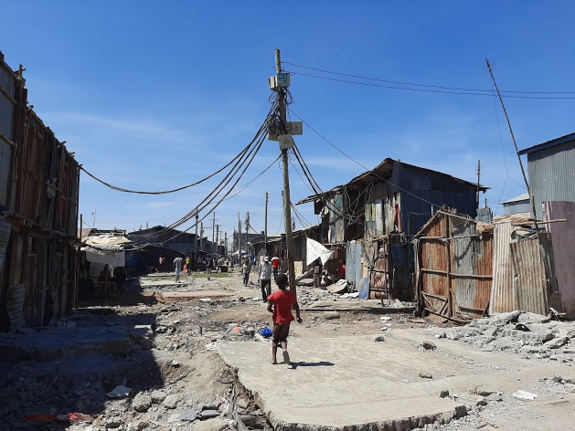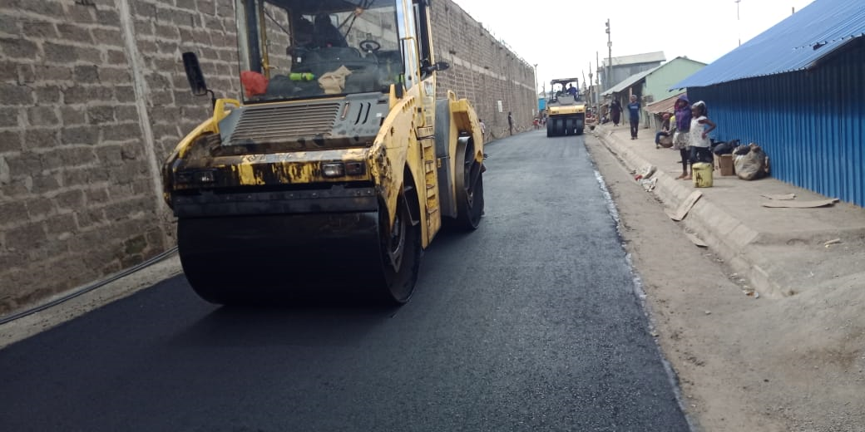I met Jane Weru for the first time in the summer of 2020, when the world was engulfed by the COVID-19 crisis. I was planning my autumn urban resilience course, offered though the UBC Sauder School of Business’ Collaborative for Urban Resilience and Effectiveness (CURE), and looking for resilience challenges to pose to my students.
Every fall since 2016, I would jump onto Zoom at 5:30 am (Pacific time) to hold classes twice a week. Forty students from 18 time zones, drawn from multiple disciplines, from universities within the Global Network for Advanced Management would join to hear from faculty, practitioners and one another about urban resilience. Each semester, we have had the privilege of working on an astonishing range of challenges posed by chief resilience officers of cities around the world. We have learned a lot – about adaptation, about interconnectedness, about working in global virtual teams, about cities and about the UN Sustainable Development Goals. I have now come to realize that all this learning was mostly in intellectual terms.
I had just met some of the team members at Slum & Shack Dwellers International, a federation of community organizations working to enhance the quality of life for residents of informal settlements in 33 countries in Asia and Africa. They spoke of Jane and Mukuru. Both names are now frequently heard in my home.
Amazing conversations with Jane, and reflection on the ups and downs of my own life, as well as the rich lives of others with whom I am connected on a daily basis, helped me move from a merely intellectual understanding to appreciating a more lived experience of resilience and interconnectedness. Jane has transformed how I think about resilience, and my role as a researcher and teacher. And she has helped me discover where I want to go next in my career.

Children playing in Mukuru (photo: Akiba Mashinani Trust)
Mukuru, an informal settlement east of Nairobi, is home to about 100,000 households spread over 689 acres of land. The vast majority are tenants, paying a monthly rent of about USD $20 for a 10 by 10-foot sheet-metal “room” with scant services. It is a harsh place – no running water, frequent fires erupting from poorly constructed and illegal electrical connections, and certainly no sanitation.
And then there are the frequent evictions. Living under the shadow of a long and painful national history of how these lands fell into the laps of “landlords,” Mukuru’s residents go to sleep every night wondering if the morning will bring bulldozers. Reading Mathew Desmond’s book Evicted helped me realize that no meaningful discussion of poverty can happen without starting with housing – “without a home, everything falls apart.”
Jane helped me feel that.
As is the case with most amazing journeys, this one also began quite by accident – in the mid-1990s. Jane had just earned a law degree and was assigned to represent a slum settlement that had been served an eviction notice. Over the course of two-and-a-half decades, she would soldier on, despite losing nearly every eviction case. Jane would transform from lawyer to community organizer to activist, to master planner to a “good troublemaker,” to a servant leader. Along the way, she founded the Akiba Mashinani Trust (AMT), a non-profit developing innovative community-led solutions to housing and land tenure problems for Kenya’s urban poor. Today, AMT is the financing facility Muungano wa Wanavijiji, the Kenya Federation of Slum & Shack Dwellers International.
This is a story worth telling. I am privileged, honoured and humbled that Jane and others at AMT invited me to document the transformation within Mukuru. We are delving into questions such as, how did Mukuru go from informal settlement with no essential services to Special Planning Area, as designated by the Nairobi City County Government? How did a community with no roads break ground for wide roads just a few months ago? How did this and the other amazing things happen in Mukuru?

Building roads in Mukuru (photo: Akiba Mashinani Trust)
From afar the changes in Mukuru seem the stuff of miracles. But it is impossible to tell this story without telling the story of Jane. This a tale that spans decades and continents, that bridges the law, spirituality, urban planning, business, strategy and leadership. It is a story that involves Italian and German clergy, sympathizers in city and national government, Canadian global development practitioners, artists, professors and students from far-flung places, NGOs, global foundations and ordinary citizens living extraordinary lives. It is at once an opportunity for us to appreciate the intersecting lessons of the triumph of hope, resilience and service, and that we can all learn from the poorest of the poor from the seemingly disconnected slums in Nairobi to those in Mumbai.
It is a story that has helped me learn what the “poverty penalty” is; what it truly means for a person to stand in service, and what locally-led resilience can look like. It has made me realize that while the story of Jane, soaring in its arc, will surely inspire, is also essential for anyone seeking to drive change and transform the world of those most vulnerable and disadvantaged among us.
Stay tuned…
Dr. Murali Chandrashekaran is the Fred H. Siller Professor of Marketing and Behavioural Science in the UBC Sauder School of Business, UBC Vice-Provost, International, and Senior Research Fellow at the Global Network for Advanced Management. His passion is nurturing global collaborations that meaningfully address the profound challenges facing humanity today.
Find out more about Jane Weru’s impactful work and Akiba Mashinani Trust.

Jane Weru (photo: Akiba Mashinani Trust)
